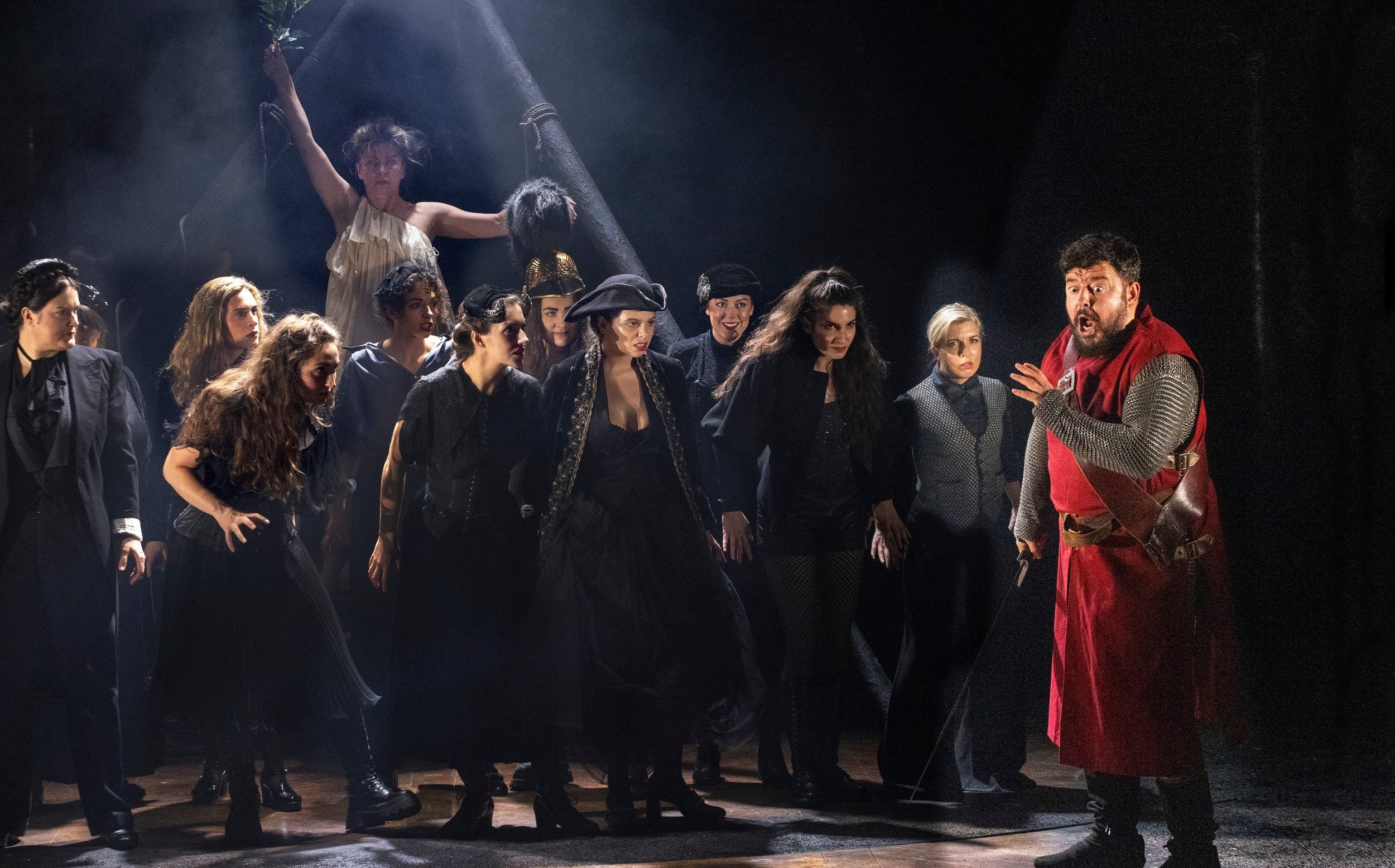Macbeth - Verdi - The Grange Festival - 5 July 2022
OH LORD – not another dark, dingy, boring, static, Macbeth. Or is it!!! Would it for once be possible to really understand the intricacies of Shakespeare’s Macbeth play? Written as an opera, in four acts, by Giuseppe Verdi in the 1847 Italian version with an Italian libretto by Francesco Maria Piave and Andrea Maffei. There is nothing further from the Florence world premiere than Grange Festival Opera in deepest Hampshire, albeit that history dictates that the two theatres were of similar style and size.
Macbeth was written during Verdi’s “galley years” – a period of 16 years which saw him compose 22 operas, some of which, today are his most successful. Macbeth, however, whilst an instant opening night success, never reached these dizzy heights and languished for many years, but its revival was secured during the 1960’s and today performed at opera houses all over the world.
The writer has seen a number of productions of this opera without feeling satisfied by any production portrayal. This is a dark opera, and most productions seem to be static by nature. But HOORAY – not this version of Macbeth. Maxine Braham the stage director & choreographer is an internationally recognised director of opera, spoken theatre and pure dance. Her work is detailed and engaging, combining body movement/choreography with an innate ability to reflect the sensitive and intricate direction and development of characters. And how indeed this showed in her highly charged and dramatic interpretation of Macbeth.
There are no longer just three witches. In fact, Verdi himself specified to the Florence impresario Alessandro Lanari the exact number of witches i.e. three groups of six and indeed this is what we got and indeed Verdi specified. There are three sets of gothic fishnet witches who are dressed in punk leather, reflecting burlesque fashion, and representing a coven of St. Trinian girls who are at the heart of this opera and almost in every scene.
The set is an ancient library, bruised and battered but in a workable state – enough for the witches to tear at the books and spells, ripping the pages and forming a carpet of written words across the whole stage. Perhaps at the core of this production is the constant movement – nothing boring here – which attracts the audience’s attention to the very detailed examination of each cast members role which has been so intricately devised in a remarkable volley of direction. The deadly coven secretes constant superstition and on occasion deadly violence.
At the core is the Macbeth of the Albanian baritone Gezim Myshketa and the Lady Macbeth of British soprano Judith Howarth. Braham doesn’t display any redeeming features for these two murderers, although she allows a rather sympathetic inner self analysis as Macbeth sits on three books at the front of stage, unloading his woes for all to hear. The two principles presented outstandingly. Myshketa started slowly, but by the time he sang his Act IV aria “Pieta, Rispetto, Amore” his substantial intense baritonal voice was producing an elegant kaleidoscope of sound.
Judith Howarth’s Lady Macbeth was a real tour de force in this ferociously difficult role, reaching almost three octaves with a D flat thrown in for good measure. She seemed to relish the challenge and managed to achieve all that was asked of her. Her dramatic soprano produces overwhelming sound intellectually portrayed with a magnetic interpretation of the role. The Banquo of Jonathan Lemalu and the Macduff of Samuel Sakker both performed well but showed signs of some vocal tension. The hidden revelation was the Malcolm of the Uruguayan tenor Andrés Presno who is just finishing his time as a Jette Parker Young Artist and has a quality vocal instrument which undoubtedly will be in high demand in the years ahead.
The evening also produced outstanding performances from the witches, the dancers and the chorus.
Musically the evening was supremely well led by the Italian conductor Francesco Cilluffo, who conducted the wonderful Bournemouth Symphony Orchestra producing dramatic sound with fiery intensity and exciting tempi. The lighting designer Matt Haskins ensured an atmospheric staging throughout, particularly in the Act III cauldron scene.
“Double, double toil and trouble: Fire burn, and cauldron bubble” – and indeed this opera really did bubble, with the audience stamping its feet for more at the end!



